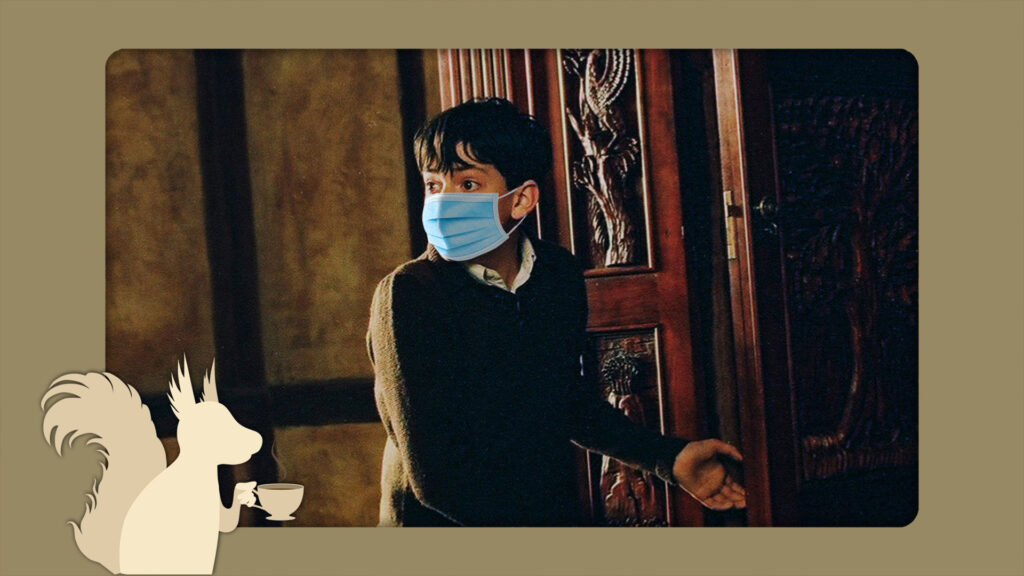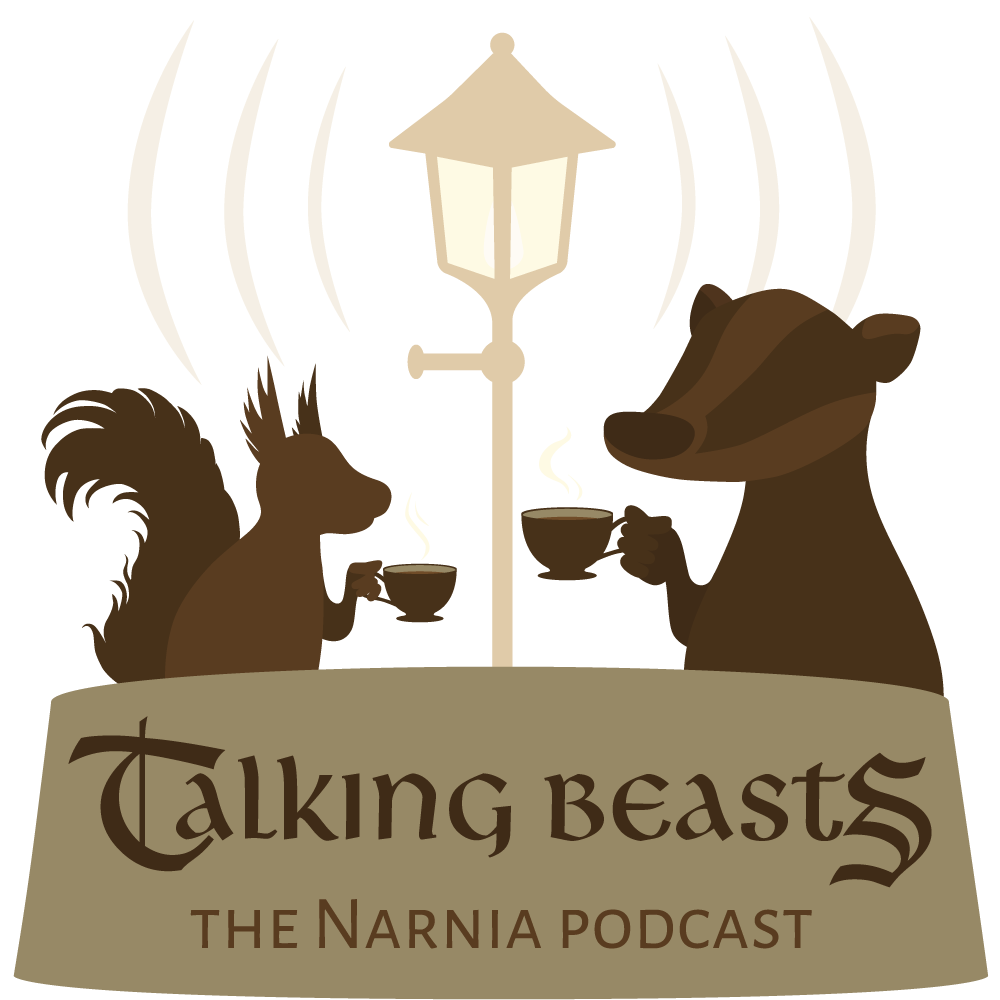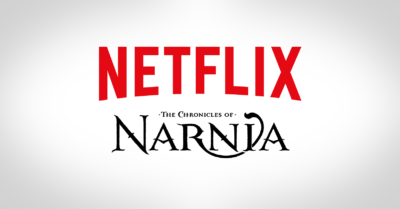Should We Escape 2020 into Narnia? | Talking Beasts

Podcast: Play in new window | Embed
Special Guest:
Dr. Michael Ward,
author of Planet Narnia
Are fairy tales a form of escapism? If so, is that a problem?
As we near the end of a difficult year for our world, special guest Dr. Michael Ward reflects on the trials C.S. Lewis endured, how they directly shaped The Chronicles of Narnia, and what we can learn from them in 2020.
In Part 2 of this conversation, Dr. Ward elaborates on his feelings about Prince Caspian‘s narrative and why he now appreciates the book more.






Definitely an interesting thought. For me, Narnia, and fantasty in general, is partly an escape from real life. But that’s not where it ends – I love stories that can inspire me, and give me renewed resolve and motivation to take on the real world as well. Escapism is definitely okay (especially when it’s in a make-belief world where things impossible things are possible), but there are still small blessings in the real world that we shouldn’t miss once we are brought back to Earth.
Hi Rilian (& all)! So glad to hear you discuss Narnia in context of (this year) with Dr Michael Ward (of/in whom I am a great fan/believer). It’s exactly what I needed right now. Thanks; and *Courage Dear Hearts.*
Great episode. It’s really interesting to me that Rilian sees suffering and sorrow as being such vital parts of what makes Narnia great. Looking back on the plots, I guess that’s true. But I don’t know. The first chapter of The Lion, the Witch and the Wardrobe doesn’t really have any great drama and when I read it for the first time, or any time really, it’s not like I’m going, “hmmm, I guess this is OK but it’s going to need something really depressing to make it truly great.”
The quote from LWW which Michael Ward mentioned might be one of my favorites even though it’s not necessarily the most eloquent part of the book. I love how it develops the narrator’s persona. He really comes across like a kind person who has known grief.
Interesting criticism of Prince Caspian. I agree that it lacks the dramatic heft of LWW’s climax but I can’t quite warm up to the proposed solution of Lucy and Edmund going to Aslan’s How without Peter and Susan. You see I love the Sorcery and Sudden Vengeance chapter and I really don’t see how it could work without Peter in it. In fact, I’m going to say it. I think LWW and PC are pretty much equal. LWW has virtues PC lacks but I find the reverse to be also true.
I wonder if the people who say that people need to stop focusing on fantasies, like Narnia, and face their real problems realize something. Facing those problems is not going to fix them. Some problems are just too complicated to solve. 🙁 And that being the case, why shouldn’t people have things, like Narnia, which give them joy and provide a brief distraction? Of course, some people can have an unhealthy addiction to fiction, rendering them useless and deluded. But I’ve never actually met anyone like that and I don’t think anyone who uses books as an “escape” necessarily falls under that category.
I have similar opinions about people who say we need to get everyone focused on science to fix the world’s problems. First of all, it’s pretty much impossible for everyone to be interested in science because science is boring and banal. (There! I said that too!) And even if everyone were interested in science, it doesn’t mean everyone would be a brilliant scientist. Brilliant people aren’t exactly a dime a dozen. There are plenty of scientists as it is, some of them brilliant, and yet many of the world’s problems remain unsolved. It’s naïve to think that it’s only a matter of numbers that’s responsible for that. Of course, there are many problems that science has solved. I’m very grateful for modern medicine and technology, especially with the pandemic. And I’m looking forward to when more of the world’s problems will have been solved by science. (My personal wish is for air travel to became as commonplace as car travel.) But there’s no way scientists can fix everything.
It’s gratifying that this podcast has now had a popular author as a guest, not counting interviews. (True, it was one of the Narnia authors whom I find most irritating but, hey, let’s look on the bright side. It could have been Patti Callahan. 😉 ) I think this podcast deserves the publicity. I worry that some Narnia fans, who haven’t listened to it, imagine it to be not as thoughtful as other Narnia podcasts because it’s connected to a news site. But it really is so much more than Narnia news updates, even when those are the actual topics of discussion.
I love how Narnia not only manages to provide an entertaining escape from the real world, but also gives us ways to deal with it. As an aspiring writer myself, C.S. Lewis’ works are an inspiration. Thanks for this podcast! This might be my unrealistic sense of optimism speaking, but perhaps 2021 will be better, but even if not, Further up and further in!
GLUMPUDDLE’s STAMP OF APPROVAL. 😉
I agree. Life is a horror story – at the very least, that’s how it feels when faced with ‘hell after suffering’ these days. Narnia helps distract from that feeling. No one should be scorned for being distracted from that.
To Andy: Further up and further in – in any case, yes! I personally think 2021 will be worse. I can only speak for those of us stuck in America. Best to put a brave face on it. Take courage!
BTW, I’m aware that both Rilian and Michael Ward really do enjoy Prince Caspian. 🙂
“Science is boring and banal” GAAAAAASSSSP you shot me with a quiver of arrows my friend. Obviously I’d never assume everyone finds science interesting, but calling it boring, I may have to end you rightly (I jest, of course)
Anyways, as someone pursuing a science degree, yes I agree scientists can’t fix everything. (I mean, in general, I don’t think humans can fix everything anyways).
Random thought: I think possibly the reason why science is sometimes treated as an answer to all the world’s problems is because for science, there is not really an endgame. This might be a dumb example, but like you can’t prove time travel is impossible right? So if you really really want to figure out time travel, you could try and try and try and you’d never hit a wall of definitive proof that your goal is impossible. Which means if someone puts all their hopes in science, they can live thinking “well it hasn’t been solved YET.” Which from a certain point of view is almost beautifully optimistic, even though I personally do not place all my faith in science.
Okay I love *love* LOVE the [paraphrasing] “Courage is the other virtues put to the test” idea.
Also, using Narnia (and books/movies in general) as a way to escape for a bit is, in my opinion, okay. Like you shouldn’t just be consuming stories, but the people I personally know who always think about “real” problems tend to lead very anxious, angry lives, which is not good at all.
I wanted to escape to Narnia I wanted to see Aslan
An argument can be made that we know we’ll never discover time trouble because no one has come from the future and mentioned it is to us. 😉
I guess the reason I’ve found science (or more accurately the study of science) to be banal is that it involves things like measuring layers of dirt and rock, which sound like the past times of people with no lives, and words like phagocytosis, and from elementary school to college, my instructors have kept going on about how very, very important it is. But to be fair, that’s how a lot of people feel the study of language and literature, which I find more interesting, comes across. Actually, even though I just said I find it more interesting, when I’ve had to study it, it’s also come across as ridiculously trivial and banal. Let’s just say education ruins every subject. LOL.
If I could, I would. Oh wait, you didn’t mean literally. 😀
All joking aside, when I was a kid, Narnia was absolutely an escape from real life (as were the the Three Musketeers, Robin Hood, King Arthur and other books, not to mention DuckTales, Ninja Turtles, Ghostbusters, video games and so on). We had a lot of stuff (toys, games etc.) growing up, but even so there was a lot to escape. I lived in our basement playroom, not a bad life for a kid, but EXTREMELY enthralled in fantasy stuff. It got to the point where the grown-ups made comments about “if he continues down this path he won’t know the difference between fantasy and reality”. That, of course, would have been a very bad thing.
But the way things played out, that time of escape was a blessing. I avoided a lot of stuff that could have affected me in much worse ways, without getting into too much detail. Short version: Jesus came into my life, and sorted (and is sorting) things. Undoubtedly my early experiences with Aslan helped me to better understand Jesus, though I didn’t know it at the time. Like that passage in VDT where Aslan said he’s in our world too, only here he goes by another name – as a kid I thought, “Aslan would be treated horribly if he came to our world; they’d probably put him in a circus or something.” Cuz as a kid, a talking lion was… well… a talking lion. I didn’t get symbolism. But seeing how bravely he faced the Witch – literally letting her kill him – was something that fascinated me. As I’ve said on the forum, she was to me as the bogie-man is to other kids; absolutely terrifying. And yet somehow, his power was greater – so much greater in fact that he even came back from the dead (which my young mind concluded was impossible because only Jesus can do that – yeah, I was taught that but still didn’t get it; guess I wasn’t the sharpest sword in the armory). 😀
Anyway, returning to 2020: Narnia is still very much an escape for me now, but in a better way. I’ve been re-reading LWW and discovering more amazing Christian imagery, one-liners, and other details that just bring me back to Jesus. Now I still enjoy Ninja Turtles, King Arthur and whatever else, but of all the other escapes we could choose, only Narnia reminds me of what matters most in either world. Narnia is inspiring, encouraging, and just plain awesome! Should we be so obsessed with it that we don’t do anything else? No, of course not. But should we enjoy escaping to Narnia every once in awhile? In my opinion, the answer is a definite “yeah!”
Hi. This is Yerdif. Just a reflection about science. While I agree that there are good things that science can do, I feel modern society’s faith in science is not only misplaced, but actually wrong. While science can do many great things, science is inherently limited by the fact the the scientific method, based on observation, limits science’s jurisdiction, so to speak, to the physical universe and how it operates. The fact that science’s focus is on the physical has led to the wrong conclusion among some that only the physical exists, but this is not only wrong logically, but it is circular reasoning. I believe many of us here would agree that most, if not all the world’s real fundamental problems are not physical, but moral and spiritual. It is people’s wrong decisions, wrong values, and wrong actions that have caused the world’s problem, and any physical or social problems are merely symptoms. It is a return to Christ, not a greater emphasis on science, that will solve the world’s fundamental problem, which is sin. Frankly, with all due respect to the scientists here, I do not see how knowing the exact speed of light can help make us humble servants of God and others, rather than proud and self-centered people. A frequent and hot debate deals with origins. People often speak of the “scientific” explanation of origins and the “religious” explanation. This, I believe, is a misconception. The origin of the universe and of life is a historical event, thus a one-time event, and therefore cannot be observed. Thus, by the limitations I mentioned before, it is beyond the scope of science. Thus, there really cannot be a “scientific” explanation of the origin of the universe. This issue must be approached in a historical way, by examining the evidence behind historical documents that describe it. The only document that has such evidence of credibility and accuracy is the Bible, but even then, it is still historical, and has religious implications, as it has consequences for how we should react to the fact that we have been created by God and his immage. However, I believe it is wrong to call creation a religious explanation. Anyway, just my thoughts on this.